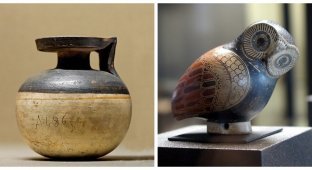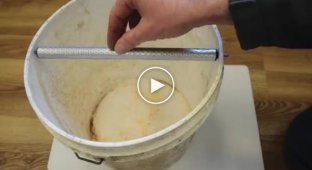In ancient China, there was a method of determining whether someone was guilty of theft using hot oil. Any guesses on how they did it? 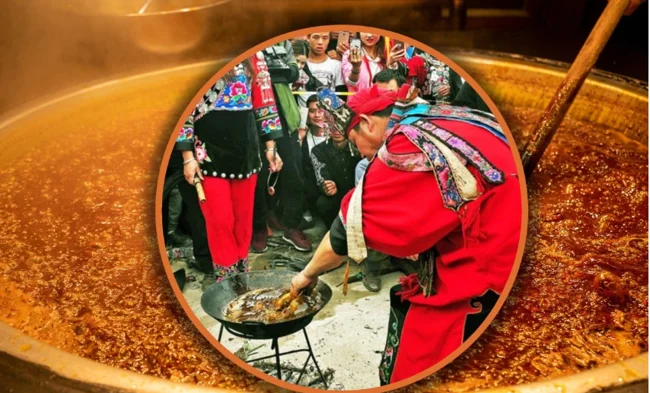
A demonstration of old traditions for tourists
It was called the "oil scooping ritual" and served to make final decisions in cases of theft or debt disputes. It was used when clear evidence was lacking. It was practiced in rural areas of southwestern China, particularly among the Yi people of Sichuan. At that time, forensic science was underdeveloped, and people lacked the knowledge to uncover the truth. Furthermore, the Yi people themselves feared officials and authorities, so they preferred to resolve complex cases themselves and with the help of local shamans. According to official records, peoples who used the Oil Court were significantly less likely to petition the courts. 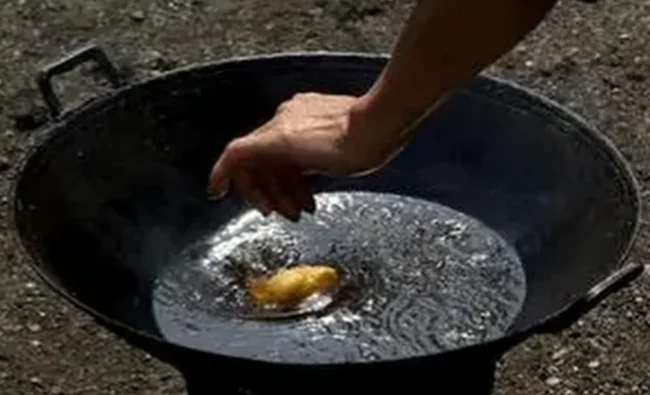
You know, an entire pot of oil isn't cheap, especially for poor rural Chinese.
Therefore, they often had to appeal to the gods to distinguish good from evil. Of course, this is blatant superstition, but it is well documented. You need to climb a high mountain, because that's where you're closest to the divine spirit. The shaman heats vegetable oil in a cauldron until it boils, simultaneously reciting incantations and performing sacred rituals. A small object is dropped into the oil pot. The exact object varies by region, but in China, it's most often just a grain of rice. However, in some villages, rings, stones, and even tiger teeth were used (not all villages had them). 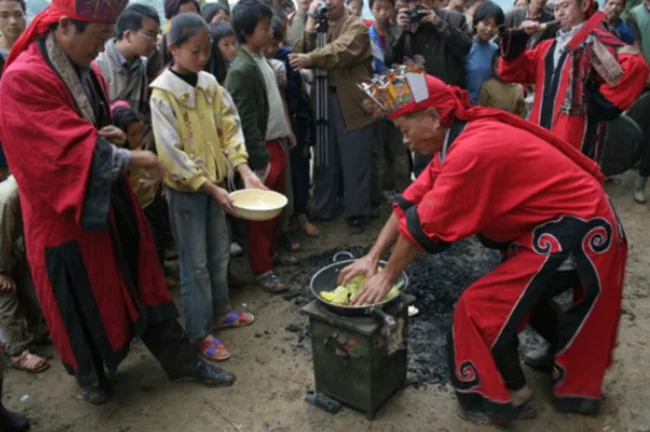
Shamans are still popular in remote settlements.
And the accused must fish out these objects with their bare hands. If the defendant's hand is injured, they are considered guilty. If the hand remains uninjured, they are considered innocent. The funniest thing is that the plaintiff is also tested with oil! If someone is accused of assault and battery and oil burns them, the plaintiff must repeat the procedure to prove the charge. So, does that mean a trial by oil will always find you guilty because oil will burn anyone? In fact, the conviction rate for oil trials was not 100%! 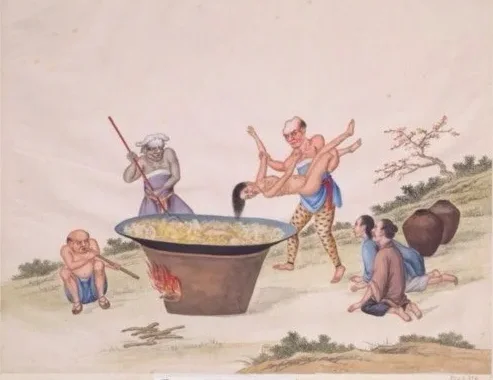
Severe crimes were executed by boiling in China.
In fact, the shaman closely watched the faces of all participants during rituals, chanting, and heating the oil. Typically, this shaman was an adult and very perceptive person. He could use all sorts of clever methods to direct the ritual to identify the person he truly believed to be guilty. For example, the shaman might secretly add vinegar to the oil. Since vinegar has a higher density, it sinks to the bottom. When heated, vinegar produces bubbles, making the surface appear to be boiling, even if the temperature is not actually very high. 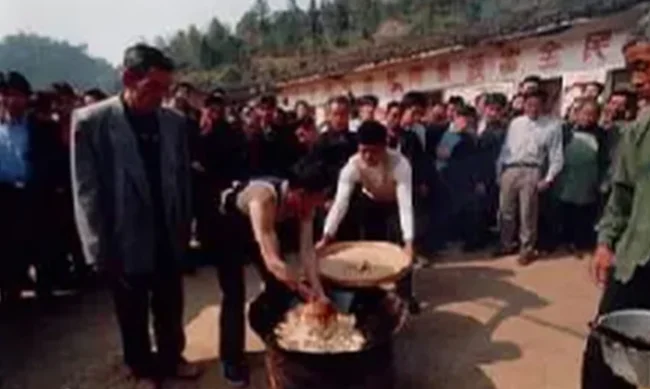
Of course, with the advent of the Communist Party, all of this was banned as fowl.
If the accused quickly dips his hand into the oil and removes the objects, he will most likely remain unharmed and be found innocent. In China, the trial was based on a trick and the shaman's observations. But in ancient India, there was the "chewed rice trial," which I've already written about. 
Have you cheated on me? Now chew thoroughly!
The defendant chewed the hard rice for a long time, then spat it out onto a leaf. If there was blood on the rice, he was guilty! This is even scientifically proven, because stress can prevent a person from salivating. Then the rice will scratch the gums without wetting them, hence the blood. At least it's some science. But which do you think has a fairer court—the human court in China or the soulless rice court in India?
Add your comment
You might be interested in:
















